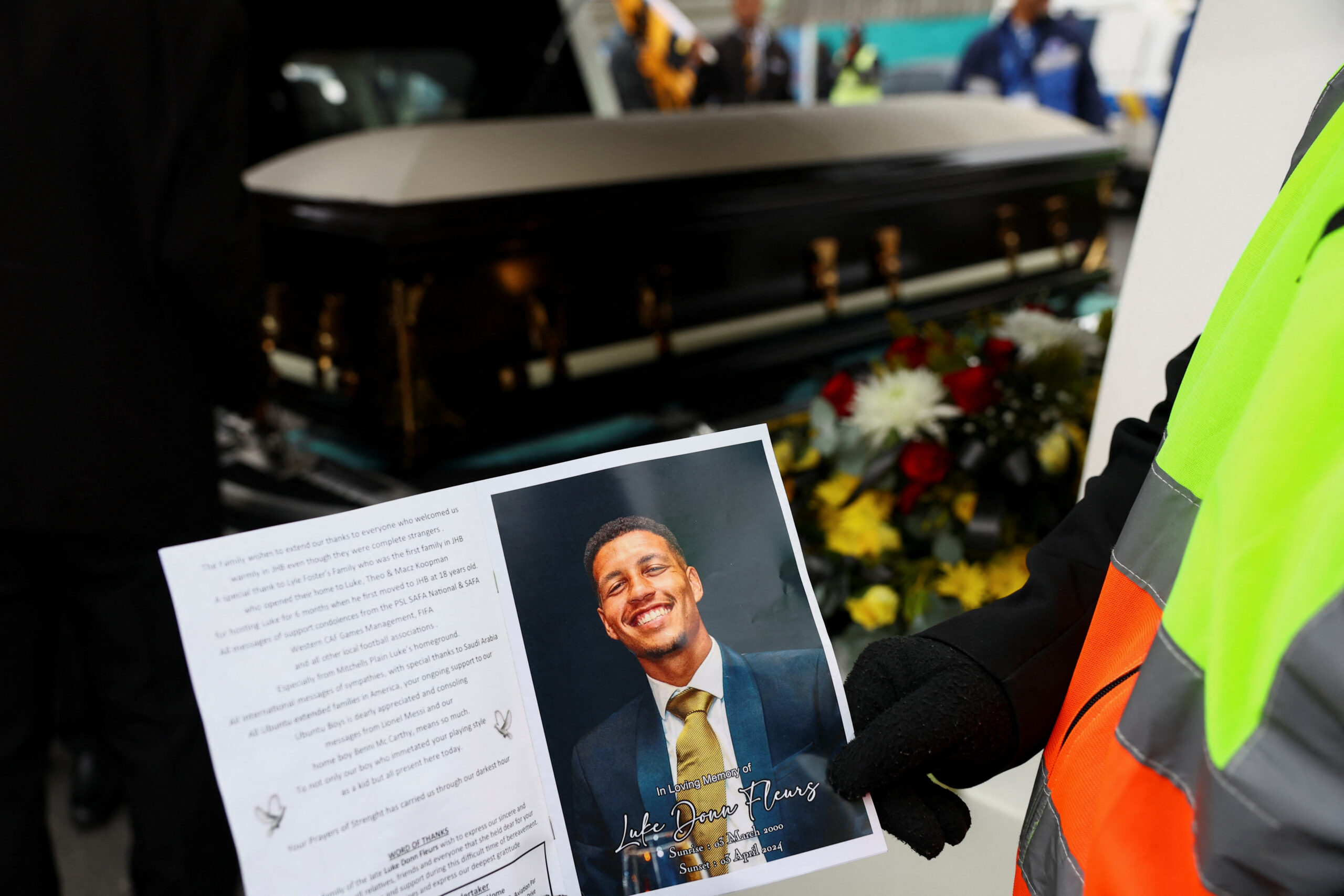
Soccer star murder highlight South Africa’s crime crisis as election approaches
Luke Fleurs grew up in a township in South Africa. While several of his classmates joined gangs before finishing high school, Fleurs pursued a different route. His exceptional soccer skills allowed him to become a professional player for the best club in South Africa.
Last month, someone stole Fleurs’ car and killed him at a Johannesburg gas station, bringing an unexpected end to his success story.
Because of his reputation as a defender for Kaizer Chiefs, the 24-year-old’s murder not only caused national outrage but also brought attention to South Africa’s crime issue. With an average of 75 murders each day, South Africa has one of the highest murder rates worldwide.
After 30 years in office, the incumbent African National Congress is anticipated to lose its majority in an election on May 29. One of the reasons for this is voter anger with the government’s inability to stop the rising crime rates.
Growing up in Mitchell’s Plain, a Cape Town area where mixed-race families were relocated by the apartheid regime, Fleurs was surrounded by crime.
His father Theo Fleurs told Reuters in an interview, “We gave our blessing for him to move to Johannesburg to escape the violence and gangs back home, only (for him) to meet his demise at the peak of his promising football career.”
He added that Luke was an outgoing youngster whose mother was known as “Magic Mom” because she fed every buddy he brought home for supper.
High school janitor and soccer instructor Theo Fleurs claimed, “It was in these groups of friends that many lost their path and went to join local gangs as early as 12 years old.” He also added that many local lads idolized the lifestyle of a gangster.
Luke’s love of sports kept him out of trouble, but by the time he was a young adult, he had lost two close friends to gun violence and one was serving a jail sentence for murder.
He had already relocated to Johannesburg when he learned of the shooting. His father added that in response to the news, he vowed to work even harder so he could serve as an example for his peers back home.
According to police data, South Africa’s murder rate in 2022–2023 was 45 per 100,000 people—the highest in 20 years—roughly equal to Ecuador’s and higher than that of Honduras, a nation beset by severe gang violence.
According to government data, the murder rate in the United States, which is among the highest in the developed world, was six per 100,000 in 2022.
According to researchers, South Africa’s high rates of poverty, unemployment, and inequality have made it easier for crime to spread there. This is made worse by the rise of organized crime groups and the recent influx of illegal firearms.
The state’s strategy, which is mostly centered on hiring more police, hasn’t altered much since the 1990s, according to David Bruce, a policing consultant at the Institute for Security Studies in South Africa.
“The South African policing system needs to adapt to a new world,” stated Bruce.
In addition to other things, the ANC’s electoral manifesto promises to modernize law enforcement, build capacities to tackle cybercrime and gang violence, and adopt a data-driven strategy.
Murder cases that are solved have become fewer in number. Government statistics show that there were 2,982 convictions and 27,494 murders in 2022–2023.
According to Ziyanda Stuurman, a senior analyst at Eurasia Group and author of a book about South African policing, “basically, one in ten murders is ever solved by the police.”
“There’s the general belief that you can get away with murdering somebody and you’re never going to get caught.”
After police tracked Luke Fleurs’ stolen automobile to Soweto, the biggest slum in South Africa, six individuals have been charged with his murder. They have declared that they will enter a not guilty plea.
The majority of the suspects, who are unemployed and are in their 20s and 30s, are from Soweto. Their family were gathered behind them as they sat tensely on the bench during a recent bond hearing.
“When I saw them I didn’t feel any hate towards them, the perpetrators, just sadness came over me for what they have done to my son and to South Africa,” stated Theo Fleurs.
“I tried for them to just look at me, I really tried, I wanted them to feel what I feel,” he stated. None of them looked up at him.
All Categories
Recent Posts
Tags
+13162306000
zoneyetu@yahoo.com


